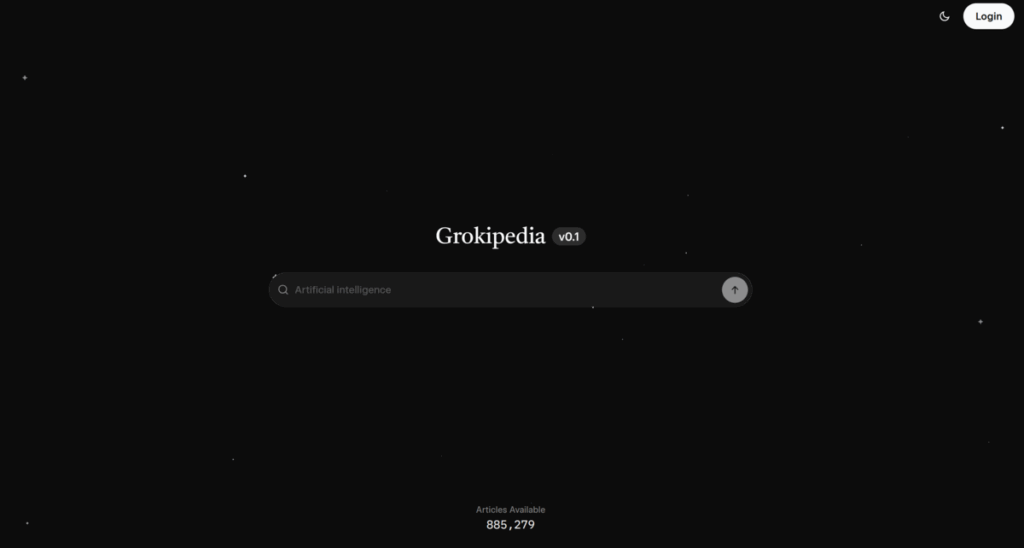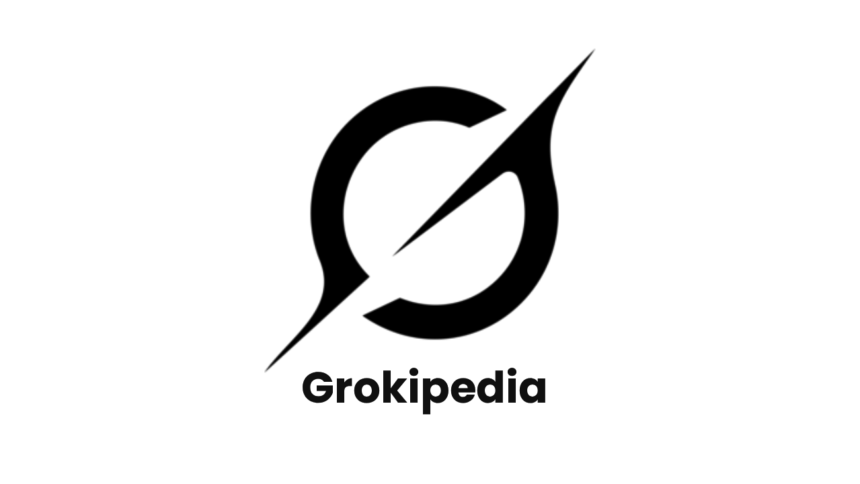Elon Musk just took his swing at the internet’s definition of “truth.” The billionaire entrepreneur unveiled Grokipedia, a new AI-driven encyclopedia positioned as a counterpoint to Wikipedia.
Unlike its open-source rival, Grokipedia relies entirely on artificial intelligence — not volunteer editors — to generate and verify content. Musk calls the project “super important for civilisation,” insisting it provides more “balanced” information than what he labels the “mainstream bias” of existing platforms.
What’s Happening & Why This Matters
Musk’s latest digital experiment reinforces his effort to reshape online information. From X (formerly Twitter) to Grok, his AI chatbot, the entrepreneur continues building an ecosystem that controls both how information spreads and how it’s interpreted.
Grokipedia’s AI-Driven Approach

Grokipedia functions without human authors or editors. Instead, it uses Grok, Musk’s proprietary AI assistant, to create and “fact-check” articles. The platform claims to rely on algorithmic moderation rather than community oversight.
That alone separates it from Wikipedia, which thrives on human transparency and collective editing. Musk described Grokipedia as “a fact-based, AI-verified repository of human knowledge” that avoids what he calls “institutional gatekeeping.”
However, early reviewers noticed that many Grokipedia entries borrow heavily from Wikipedia. Side-by-side comparisons reveal identical text with minor edits, raising questions about originality and data ethics.
Politics, Bias, and Influence
According to reports from The Guardian, Musk’s encyclopedia leans sharply conservative. Articles mirror right-wing talking points, especially on politically sensitive subjects.
For example, the entry about the 6 January Capitol attack references “widespread claims of voting irregularities,” echoing rhetoric used by President Donald Trump and allies. It also downplays Trump’s role in the event, describing the riot as “a legitimate expression of grievances” rather than an organised assault on democracy.
Other topics — such as the AIDS epidemic — feature claims that journalists and researchers describe as inaccurate or misleading. One passage suggests that pornography contributed to worsening the crisis, a statement critics say misrepresents established medical history.

Musk reportedly developed the idea with David Sacks, the Trump administration’s AI and cryptocurrency advisor. The pair envisioned an “AI encyclopedia aligned with truth, not ideology.” But many observers see it as an ideological mirror designed to amplify Musk’s social influence through X and Grok.
Public Reactions
Reactions to Grokipedia are polarised. Supporters praise it as an innovation in information delivery. Critics call it a propaganda engine wrapped in an algorithm.
Media scholar Allison Reed told TechFyle, “When an encyclopedia removes human editorial review, it removes accountability. Grokipedia doesn’t democratize truth — it privatises it.”
Meanwhile, Musk remains unfazed. He promotes Grokipedia on X as “the world’s first AI encyclopedia that fact-checks the fact-checkers.”
A Gallup poll conducted in August shows Musk’s popularity at record lows, ranking him as “the most disliked public figure in the U.S.” Yet, his ability to dominate headlines demonstrates his continued command of public discourse — especially when technology, politics, and information collide.
TF Summary: What’s Next
Grokipedia marks another step in Musk’s plan to redefine online information. The platform blends artificial intelligence with ideological narrative, creating a new model for digital authority.
MY FORECAST: Expect Grokipedia to rapidly integrate with X, driving engagement among Musk’s audience. The AI-driven approach deepens the debate over bias and truth in assistive systems. As governments champion regulation of misinformation, Grokipedia’s bearing to “AI fact-checking” will kick off fresh legal and ethical fights.
— Text-to-Speech (TTS) provided by gspeech


